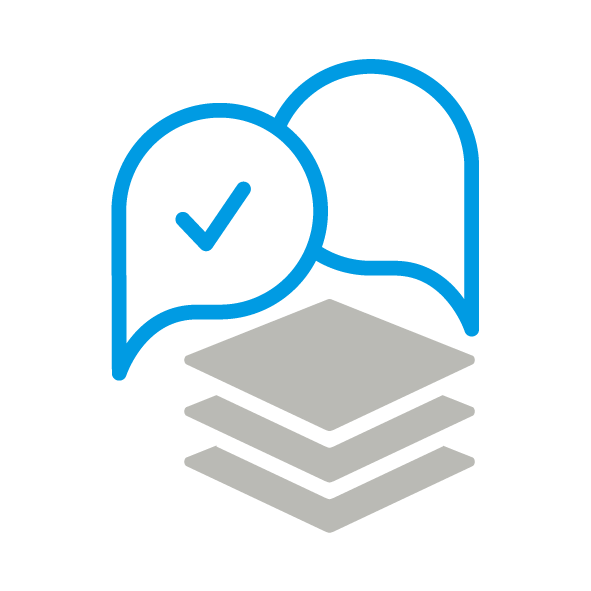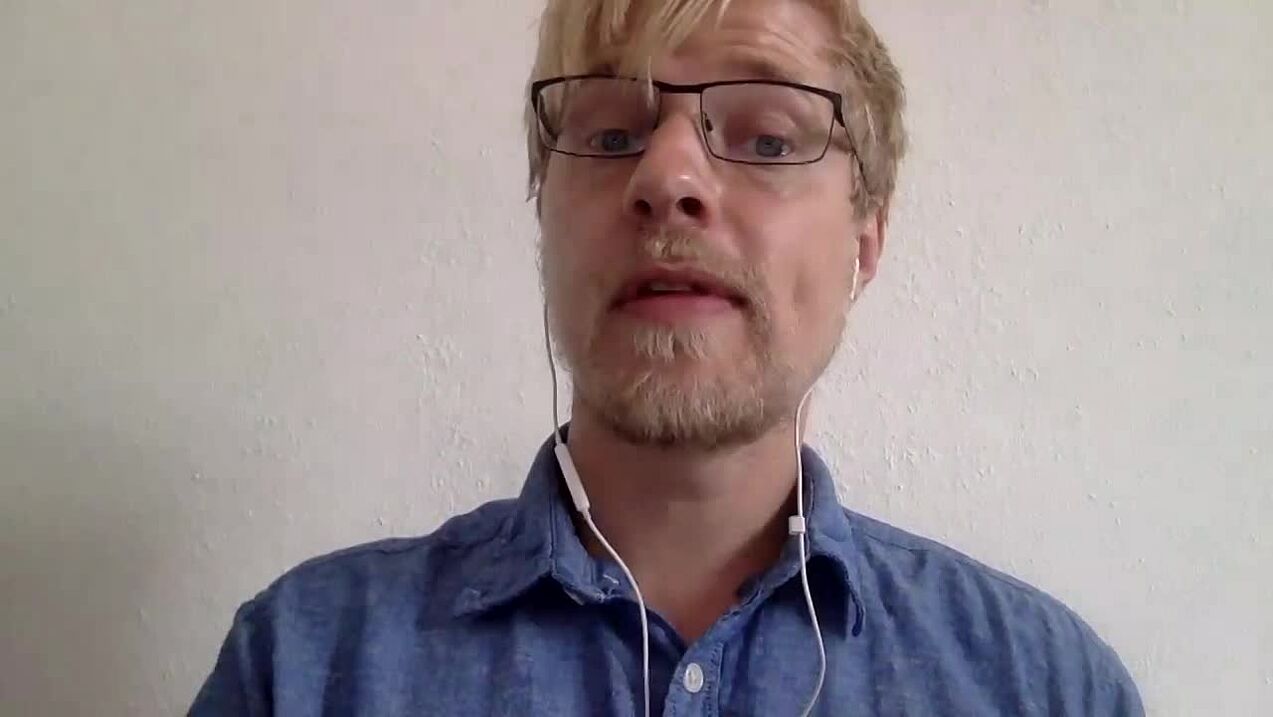Projekt INF: RAG-basierte Informationbereitstellung

Die Mitglieder des INF-Projektes arbeiten übergreifend zu den Teilprojekten aus den Bereichen A, B und C. Sie untersuchen, wie sich die Qualität und der Erfolg einer Erklärung messen lassen. Dafür analysieren die Informatiker*innen zunächst natürlich-sprachliche Erklärungen, zum Beispiel schriftliche Aufzeichnungen aus anderen Projekten oder Erklärungsdialoge aus Internetforen. Aus den Ergebnissen der Analyse entwickeln sie Hilfsmittel und Kriterien, die auf Erklärungen angewendet werden können. Darüber hinaus stellen die INF-Mitglieder den TRR-Forscher*innen ein Glossar mit Schlüsselkonzepten zur Verfügung. Das Ziel des Projektes ist es, Erkenntnisse dazu zu gewinnen, wann Erklärungen erfolgreich sind. Dadurch tragen die Wissenschaftler*innen zu einer umfassenden Theorie der Ko-Konstruktion von Erklärungen bei, wie sie im TRR 318 erarbeitet wird.
Forschungsgebiete: Informatik
Hilfskräfte
Akshit Bhatia, Universität Paderborn
Maryam Bahraminejad, Universität Bielefeld
Alexander Espig, Leibniz Universität Hannover
Simona Ignatova, Universität Bielefeld
Felix Lange, Universität Paderborn
Maryam Nobakht, Universität Bielefeld
Yaxi Wang, Leibniz Universität Hannover
Ehemalige Mitglieder
Prof. Dr. Henning Wachsmuth, Projektleitung
Prof. Dr. Philipp Cimiano, Projektleitung
Dr. Milad Alshomary, Wissenschaftlicher Mitarbeiter
Maximilian Spliethöver, Wissenschaftlicher Mitarbeiter
Meisam Booshehri, Wissenschaftlicher Mitarbeiter
Publikationen
Components of an explanation for co-constructive sXAI
A.-L. Vollmer, H.M. Buhl, R. Alami, K. Främling, A. Grimminger, M. Booshehri, A.-C. Ngonga Ngomo, in: K.J. Rohlfing, K. Främling, S. Alpsancar, K. Thommes, B.Y. Lim (Eds.), Social Explainable AI, Springer, n.d.
Incremental communication
B. Wrede, H. Buschmeier, K.J. Rohlfing, M. Booshehri, A. Grimminger, in: K.J. Rohlfing, K. Främling, S. Alpsancar, K. Thommes, B.Y. Lim (Eds.), Social Explainable AI, Springer, n.d.
A BFO-based ontological analysis of entities in Social XAI
M. Booshehri, H. Buschmeier, P. Cimiano, in: Proceedings of the 15th International Conference on Formal Ontology in Information Systems, IOS Press, 2025, pp. 255–268.
A BFO-based ontology of context for Social XAI
M. Booshehri, H. Buschmeier, P. Cimiano, in: Abstracts of the 3rd TRR 318 Conference: Contextualizing Explanations, 2025.
Investigating Co-Constructive Behavior of Large Language Models in Explanation Dialogues
L. Fichtel, M. Spliethöver, E. Hüllermeier, P. Jimenez, N. Klowait, S. Kopp, A.-C. Ngonga Ngomo, A. Robrecht, I. Scharlau, L. Terfloth, A.-L. Vollmer, H. Wachsmuth, in: Proceedings of the 26th Annual Meeting of the Special Interest Group on Discourse and Dialogue, Association for Computational Linguistics, Avignon, France, n.d.
Adaptive Prompting: Ad-hoc Prompt Composition for Social Bias Detection
M. Spliethöver, T. Knebler, F. Fumagalli, M. Muschalik, B. Hammer, E. Hüllermeier, H. Wachsmuth, in: L. Chiruzzo, A. Ritter, L. Wang (Eds.), Proceedings of the 2025 Conference of the Nations of the Americas Chapter of the Association for Computational Linguistics: Human Language Technologies (Volume 1: Long Papers), Association for Computational Linguistics, Albuquerque, New Mexico, 2025, pp. 2421–2449.
Modeling the Quality of Dialogical Explanations
M. Alshomary, F. Lange, M. Booshehri, M. Sengupta, P. Cimiano, H. Wachsmuth, in: N. Calzolari, M.-Y. Kan, V. Hoste, A. Lenci, S. Sakti, N. Xue (Eds.), Proceedings of the 2024 Joint International Conference on Computational Linguistics, Language Resources and Evaluation (LREC-COLING 2024), ELRA and ICCL, Torino, Italia, 2024, pp. 11523–11536.
Towards a Computational Architecture for Co-Constructive Explainable Systems
H. Buschmeier, P. Cimiano, S. Kopp, J. Kornowicz, O. Lammert, M. Matarese, D. Mindlin, A.S. Robrecht, A.-L. Vollmer, P. Wagner, B. Wrede, M. Booshehri, in: Proceedings of the 2024 Workshop on Explainability Engineering, ACM, 2024, pp. 20–25.
Towards a BFO-based ontology of understanding in explanatory interactions
M. Booshehri, H. Buschmeier, P. Cimiano, in: Proceedings of the 4th International Workshop on Data Meets Applied Ontologies in Explainable AI (DAO-XAI), International Association for Ontology and its Applications, Santiago de Compostela, Spain, 2024.
A model of factors contributing to the success of dialogical explanations
M. Booshehri, H. Buschmeier, P. Cimiano, in: Proceedings of the 26th ACM International Conference on Multimodal Interaction, ACM, San José, Costa Rica, 2024, pp. 373–381.
Disentangling Dialect from Social Bias via Multitask Learning to Improve Fairness
M. Spliethöver, S.N. Menon, H. Wachsmuth, in: L.-W. Ku, A. Martins, V. Srikumar (Eds.), Findings of the Association for Computational Linguistics: ACL 2024, Association for Computational Linguistics, Bangkok, Thailand, 2024, pp. 9294–9313.
Conclusion-based Counter-Argument Generation
M. Alshomary, H. Wachsmuth, in: A. Vlachos, I. Augenstein (Eds.), Proceedings of the 17th Conference of the European Chapter of the Association for Computational Linguistics, Association for Computational Linguistics, Dubrovnik, Croatia, 2023, pp. 957–967.
“Mama Always Had a Way of Explaining Things So I Could Understand”: A Dialogue Corpus for Learning to Construct Explanations
H. Wachsmuth, M. Alshomary, in: N. Calzolari, C.-R. Huang, H. Kim, J. Pustejovsky, L. Wanner, K.-S. Choi, P.-M. Ryu, H.-H. Chen, L. Donatelli, H. Ji, S. Kurohashi, P. Paggio, N. Xue, S. Kim, Y. Hahm, Z. He, T.K. Lee, E. Santus, F. Bond, S.-H. Na (Eds.), Proceedings of the 29th International Conference on Computational Linguistics, International Committee on Computational Linguistics, Gyeongju, Republic of Korea, 2022, pp. 344–354.
Generating Contrastive Snippets for Argument Search
M. Alshomary, J. Rieskamp, H. Wachsmuth, in: Proceedings of the 9th International Conference on Computational Models of Argument, 2022, pp. 21–31.
The Moral Debater: A Study on the Computational Generation of Morally Framed Arguments
M. Alshomary, R. El Baff, T. Gurcke, H. Wachsmuth, in: Proceedings of the 60th Annual Meeting of the Association for Computational Linguistics, 2022, pp. 8782–8797.
Alle Publikationen anzeigen



